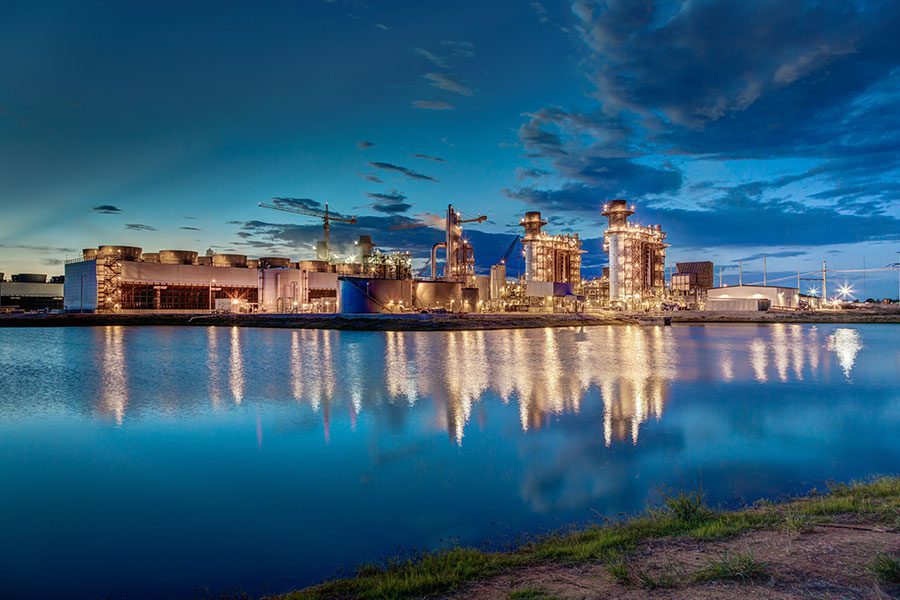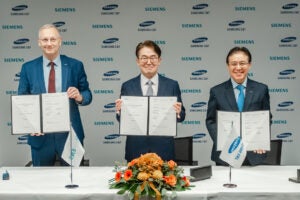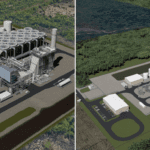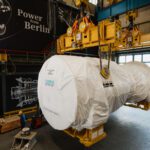BKV Corp., a privately held natural gas exploration and production company headquartered in Denver, Colorado, said it will purchase the Temple 1 power plant in Temple, Texas. The deal, valued at $430 million and subject to customary closing conditions, is expected to close in the fourth quarter of 2021.
“We’re excited about this acquisition, and the strategic steps we are taking to position BKV as a leading integrated energy company with cleaner, greener energy,” Chris Kalnin, CEO of BKV, said in a statement issued to POWER. “By extending our natural gas business into a power business we are able to deliver to unprecedented grid reliability, while also creating industry leading ESG [environmental, social, and governance] standards because we can directly certify our emissions footprint at each step in the value chain, from underground molecule to burner tip.”
State-of-the-Art Facility
Temple 1 (Figure 1) is a 758-MW combined cycle facility built in 2014. It has two Siemens SGT6-5000F gas turbines, each of which feeds an NEM USA Benson duct-fired heat recovery steam generator, with the steam powering a single Siemens SST6-5000 steam turbine. Siemens also supplied the generators, instrumentation, and control system for the power station, which was recognized in 2015 with a POWER Top Plant award.

The plant is designed to start faster and ramp faster than earlier models. The gas turbines can begin generating electricity in 10 minutes, can reach 60% load (220 MW) in 20 minutes, and hit full load within 30 minutes, with the plant reaching full combined cycle power production in under 60 minutes. The facility also features advanced emissions control technology, making it one of the cleanest natural gas-fueled power plants in the U.S.
Temple 1 was one of the few power plants that operated throughout Storm Uri, providing desperately needed power to the grid during the peak of the storm in February. The plant provides enough energy to power 750,000 homes across central Texas and is strategically located on 250 acres adjacent to the Interstate 35 corridor.
Temple Generation I LLC has operated the facility since it entered service in 2014. In 2018, the company successfully reorganized in partnership with prominent financial institutions including funds managed by affiliates of Fortress Investment Group LLC, Kennedy Lewis Investment Management, and the Infrastructure and Power group of Ares Management.
BKV will purchase the Temple 1 plant in partnership with Banpu Power U.S. Corp. The group will acquire all of the equity interests in Temple Generation Intermediate Holdings II LLC, which is the entity that owns the power plant through its subsidiary Temple Generation I LLC.
Growth Through Acquisition
BKV is a relatively young company, with history going back to 2015. Kalnin Ventures was founded that year as fund manager of BKV Oil and Gas Partners, owned by Banpu PCL, a diversified energy company based in Thailand. Following a “growth-by-acquisition/management strategy,” in 2016, BKV Chaffee Corners LLC acquired a 29.4% interest in the Marcellus Chaffee Corners Concession (operated by Repsol) from Range Resources.
Further acquisitions followed in the Northeastern Pennsylvania (NEPA) Marcellus, including Chief, Radler, Tug Hill, and Zena Energy. By late 2017, BKV was expanding into an operator position, while also acquiring additional midstream assets. It acquired ownership stakes in Carrizo, Reliance, and Warren Resources in NEPA, making it one of the top 20 natural gas producers in Pennsylvania, with an interest in 355 active wells with net natural gas production of 160 million cubic feet per day.
In 2020, the company shed its fund structure to emerge as BKV Corp. In October that year, the company purchased Devon Energy’s Barnett assets in North Texas. The deal included more than 320,000 gross acres and 4,200 producing wells, making BKV the largest natural gas producer in the Barnett Shale.
—Aaron Larson is POWER’s executive editor (@AaronL_Power, @POWERmagazine).










